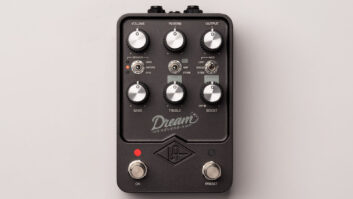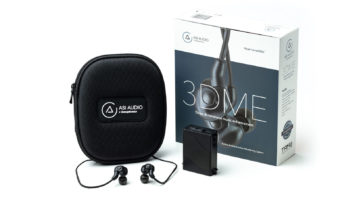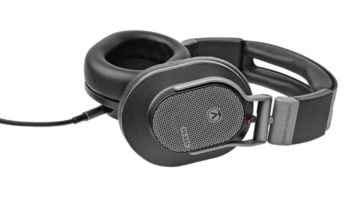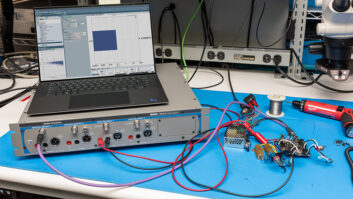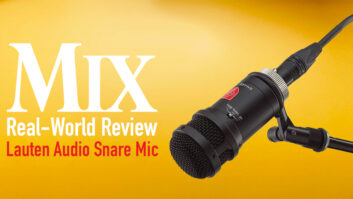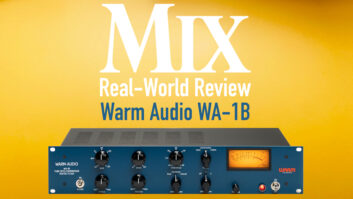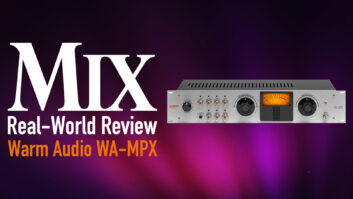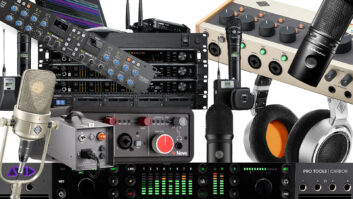The digital revolution has drastically reduced the cost of entry into production and post production, and as a result, audio professionals have increasingly become used to buying their equipment from retailers. With only the larger or more specialized items of pro audio hardware still available directly from the manufacturers, retailers have focused on various areas of expertise to differentiate themselves from their competitors.
Guitar Center has encouraged the pro audio market, of course, with its GC Pro division catering to those professionals and encouraging some manufacturers to make certain of their products available at retail. The model now, observes Rick Plushner, GC Pro director, “is to be able to have the high-quality products in our locations so that they’re available for purchase and also for evaluation.”
What gear is available at each of the 35 GC Pro offices varies according to the size of each city’s market, but, says Plushner, “We want to bring a certain core group of products—real high-end mic preamps, limiter-compressors, monitor speakers, microphones— to all of the locations. If you walk into any GC Pro, you’re going to see that level of equipment. In the bigger markets, you’re likely to also see Neve Genesys or SSL AWS consoles.”
According to Jeff Briss, a founding partner at Cutting Edge Audio Group in San Francisco, almost 100 percent of his business is equipment systems or packages. “Our walk-in retail business is almost nonexistent. We have this really nice showroom with lots of gear in it and no one ever comes here.”
With the Bay Area home to a number of videogame developers and highend production facilities, Cutting Edge has found a market for both audio and video products. “Most of our clients are doing something to or with video,” says Briss. “Most of what we do is turnkey systems: a Pro Tools rig, or a Final Cut or Avid solution. What we deliver is a loaded computer— the hardware is in it and the software is typically even registered.”
Indeed, Briss notes, Cutting Edge has become an important resource, keeping track of clients’ equipment and licenses. For example, he says, a facility will call to add, say, more Waves Mercury bundles. “I’ll review their account and tell them they have enough to qualify for a multi-seat discount. I have all their records. I’ve been working with [some clients] for so long that I’ve outlasted a lot of their employees; I know more about what they have than they do.”
Jeff Ehrenberg, West Coast sales representative for Vintage King Audio and co-owner of Infrasonic Sound, a recording studio that also serves as an equipment showplace, relates that the company has built on its roots to now offer everything from single items to fully installed packages. “In the beginning, it literally was only vintage and used recording equipment. In order to have a good position in the marketplace, all the used and vintage stuff that [owner] Mike Nehra sold was fully serviced and refurbished. He started with one technician; now there are 13 people.”
Ehrenberg continues, “That gives us a pretty good advantage because we’re literally full-service.” New and vintage gear is in stock, never brokered, he notes, and the tech staff can do anything: service a 1950 Neumann U47 mic, completely refurbish a Neve 8058 console, or configure a DAW and network.
Cutting Edge doesn’t do install work, but the company does provide planning and project management expertise, says Briss. “Typically we’re brought in at an early enough stage where we can plan the project out, discuss the workflow, the positioning, and how files move from one area to another. We work closely with the installers, and we work on scheduling the arrival of the gear. The installer is in there day to day, but we’re doing the behindthe- scenes work with him.”
Currently, sales are pretty evenly split between components and systems in terms of gross numbers, reports Ehrenberg. But the sale of a console, for example, can mushroom, he notes, “Not only do they need the console but they also will usually add or upgrade their converters, and that maybe leads to a clock, because they’re using so much conversion. What starts out as just a console sale usually ends up being a lot more.”
Retail certainly has its place, according to Plushner. “What it really comes down to is value-added—what the sales engineer can add to it in terms of his or her experience and expertise.”
The GC Pro division replicates the oldschool boutique dealerships of yore, he says, “Where you’d know your local person who would be able to come into your facility, consult with you, bring you some gear to evaluate. That’s our approach, on a one-to-one basis, across the country.”
What it boils down to, he says, is “service, service, service. It’s the consultative services that really make the difference.”
